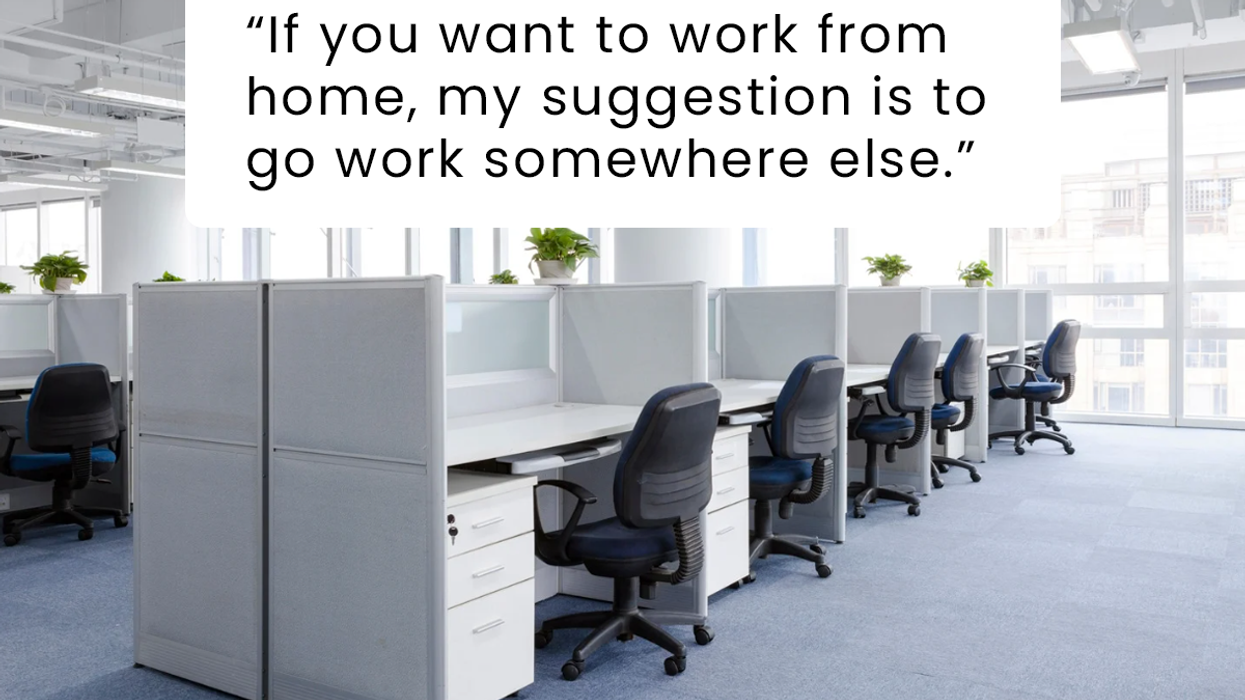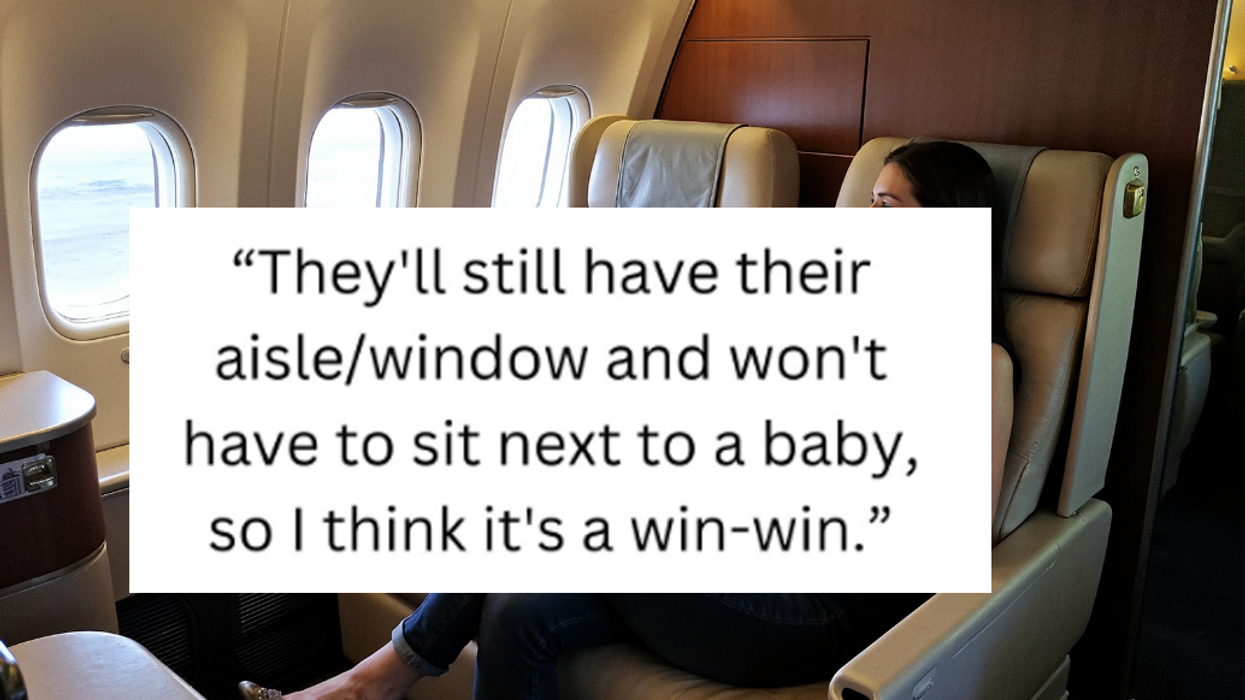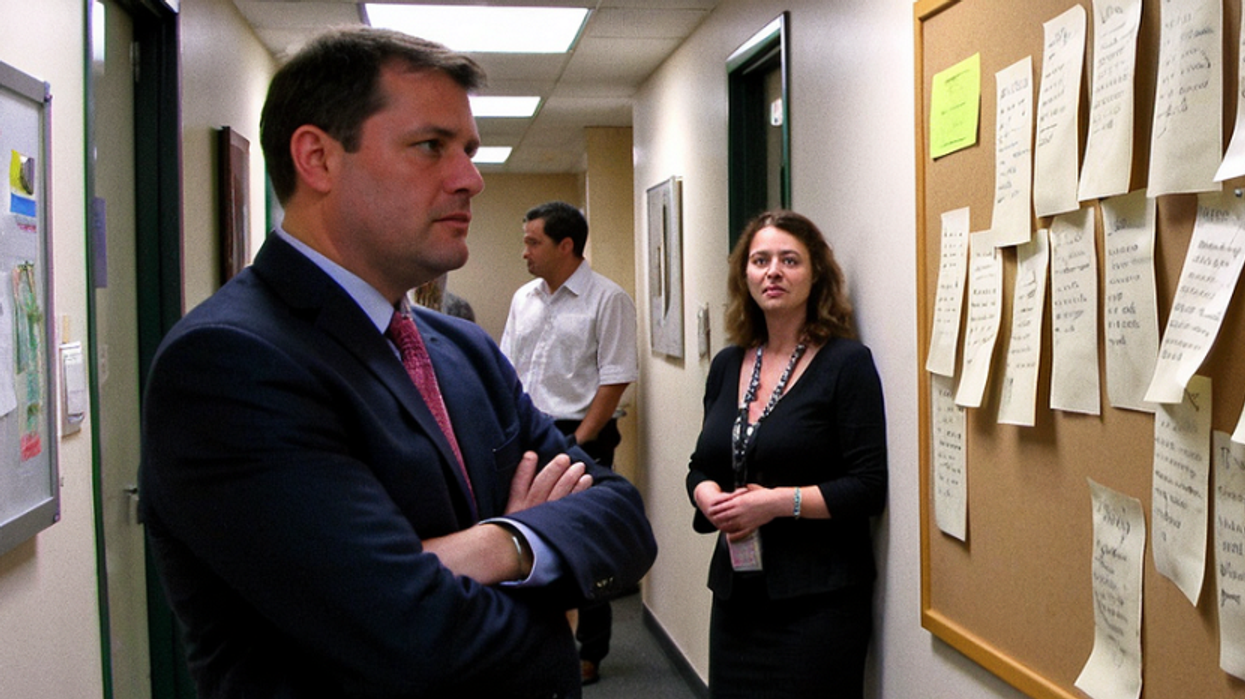For years, working from home was seen as a luxury. But after the pandemic forced companies into remote operations, it quickly became a new normal—and a preferred one for many. Now, some businesses are struggling to reconcile their desire to return to pre-pandemic norms with a workforce that’s grown wise to its rights and expectations.
One Reddit user recently shared a cautionary tale about what happens when leadership ignores that shift. In a post picked up by Bored Panda, the former team lead at a major food delivery app explained how a rigid return-to-office policy backfired spectacularly—and cost the company most of its team.
Remote work was working
The story begins with a team that had adapted beautifully to remote life.
"The entire team had been working from home since the start of the pandemic and had a bunch of remote-only people join," they wrote. "They were spread across several time zones, but we made it work because we thought this was how things were going to be going forward."
Operations were running smoothly, morale was high, and many workers had even relocated based on the company’s assurances that remote work was here to stay. But then leadership abruptly shifted course.
Some people can't stand empty seats
"After making several billion dollars from people like us working from home and ordering delivery... the entire C-suite decided that COVID was pretty much over... and that we would all be heading back to the office part-time, gradually increasing to full time."
The kicker? Many employees were hired as fully remote workers and didn’t live near any company offices.

"Those in cities without an office, even though they were hired as remote workers, were expected to come up with a 1-year plan about how they were going to move without any assistance or compensation."
Things came to a head during a company-wide town hall. One brave employee asked if exceptions would be made for remote hires who had no intention—or ability—to relocate. The CEO’s answer made jaws drop.
"If you want to work from home, go work somewhere else."
— Company CEO
Oh no, the consequences of your actions
That blunt response triggered a slow-motion collapse.
"The company Slack channel conversations ground to a halt and became virtual ghost towns," the former employee wrote. "Attendance at company-wide meetings fell by half and within a month, there was a veritable flurry of resignations, including mine."
"Slack went dead. Meetings got empty. Everyone was done."
— u/OriginalPoster
"By the time I left, the team that started at 8 people was down to just two deciding to stay. And six months later, word is that they are still trying to find people and resorting to making QA people into app developers just to try to keep things going."
Fortunately, the former team lead landed on their feet.
"I got a 50% pay bump for less responsibilities and work just a few hours a day instead of tons of unpaid overtime."
"50% pay bump, less stress. No regrets."
— u/OriginalPoster
Other Redditors jumped in to confirm the story—or share similar experiences.
u/AnotherEmployee chimed in: "I can confirm the CEO said something really similar to this in an all-hands a few months ago. I remember it enraged me. I will also be leaving when they do it, just wanna grab my bonus first."
Not everyone agrees on work from home
Still, some employees supported the policy, blaming declining productivity among remote workers. u/RealistWorker shared: "Some people will do literally nothing unless you directly ask them when working remotely… It is really hard for some people to find initiative."
But even the original poster agreed there were downsides to remote work—just not enough to justify the company’s heavy-handed approach.
"Those are fair points and I definitely saw a lot of people who were just phoning it in... But it should be the worker's choice unless there is a damn good reason, not just because the boss wants to see butts in chairs."












 It wasn't even February, so she wasn't expecting what came next.
It wasn't even February, so she wasn't expecting what came next.  The hug came first, the 'yes' took a few moments more.
The hug came first, the 'yes' took a few moments more. 






 Representative Image Source: Pexels | Oleksandr P
Representative Image Source: Pexels | Oleksandr P  Layout of the plane seatsImage Source: Mumsnet |
Layout of the plane seatsImage Source: Mumsnet | 




 Image Source: Joshua Potash | Reddit
Image Source: Joshua Potash | Reddit 



 Representative photo by luis arias |
Representative photo by luis arias | 
 Representative photo by Jamie Lee |
Representative photo by Jamie Lee | 
